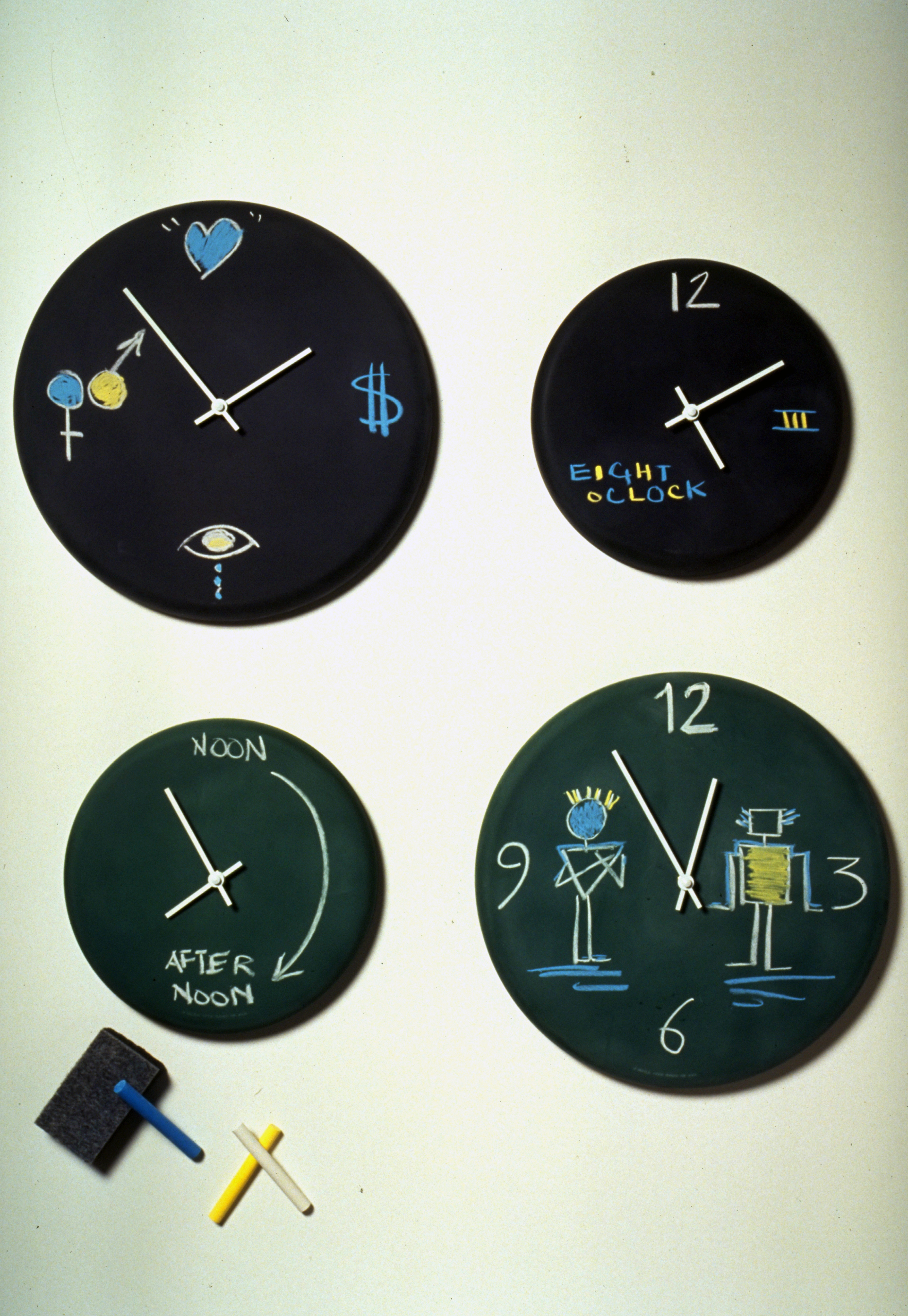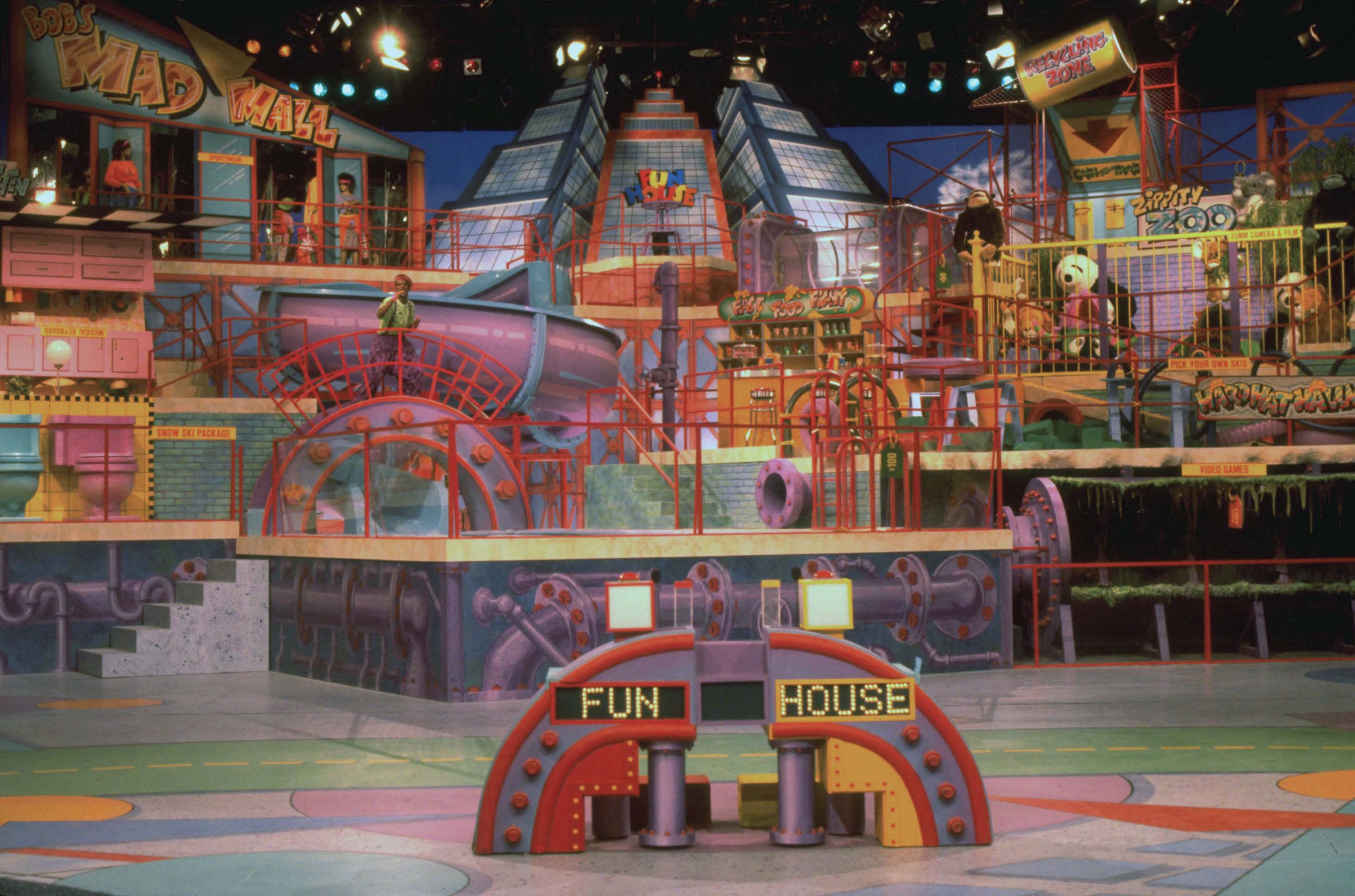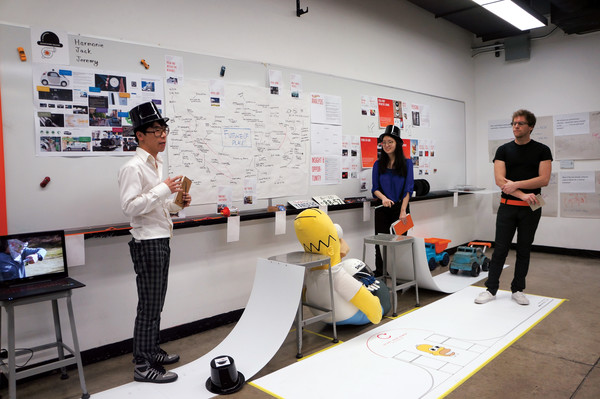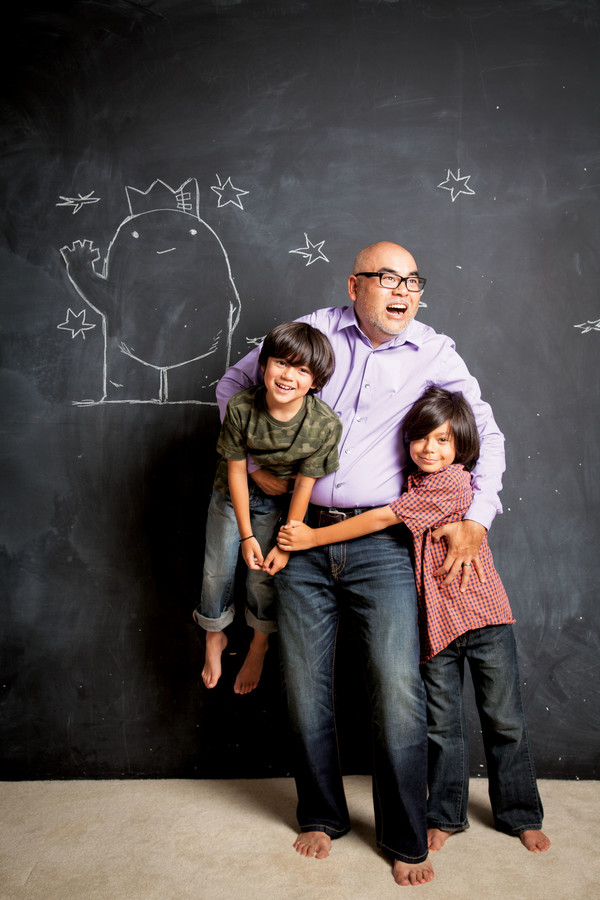profile / faculty / product-design / designmatters / sponsored-projects
May 10, 2017
Writer: Anna Macaulay
Images courtesy of Krystina Castella
Product Design faculty member Krystina Castella on the serious business of designing for play
If there is a fountain of youth, full-time faculty member Krystina Castella may have discovered it. Castella, whose youthful appearance and intense enthusiasm for everything she does belies her years of experience, has been teaching at ArtCenter 25 years, the last 12 of them full time.
A Product Design faculty member, she also leads sponsored projects and Designmatters Transdisciplinary Studios (TDS). Additionally, she teaches business classes in the Humanities and Sciences department, materials classes in the Integrated Studies department, classes about the manufacturing and licensing process for ArtCenter at Night and a t-shirt start-up class for the ArtCenter for Teens program.
A graduate of RISD’s industrial design program, Castella also studied cognitive developmental psychology and cultural anthropology with a focus on children’s culture at UCLA. Which leads us to the one thread that has been constant in her lengthy professional career—her work’s focus is often centered on creating and designing for kids.
“There are many big questions about how kids are growing up today,” says Castella, an enterprising mother of a 5-year-old. “Designers with our research methods and expertise in user experiences are coming up with interesting solutions to create change. We can do a lot to make a difference in kids daily lives today and in the future.”

Designing for kids is serious business. Designers have to consider physical, cognitive and emotional development; safety standards; educational benefits and outcomes; and new media and technology challenges. That’s on top of all the regular business considerations such as distribution channels and licensing.
“In design programs throughout the world, ergonomics, materials, form language, type treatment and digital interaction are usually taught to students as general subjects, with no specific focus on the differences between how kids and adults may use a product, read a poster or interact with a device,” she explains.
In her years teaching at ArtCenter, Castella has used her knowledge and expertise in designing for children to help students across the College’s disciplines. She has worked with students on children’s educational programs, products, medical devices, furniture, home goods, interactive media, entertainment properties, apps, books, character properties, environments, toys and games. What she discovered is that many students, and professional designers, lack training in the research practices in co-designing with and for children.
In addition to her teaching career, Castella has worked on theme park design for Walt Disney Imagineering, created products for kids in her own manufacturing company, co-authored three children’s books with her husband (faculty member Brian Boyl), designed sets and produced segments for the kid’s TV show Fun House, developed Hypercolor clothing for Generra Sportswear, designed kids museum exhibits for the Brooklyn Children’s Museum, developed a museum exhibit and accompanying family workshops and curriculum that traveled the U.S., and authored eight family-oriented cookbooks focusing on playful treats.

Coupling her professional experience and academic background, Castella recently applied for and received an ArtCenter Faculty Enrichment Grant to pursue research on designing for kids. Her grant award caught the eye of text book publisher Routledge. Armed with funds and a publishing deadline, Castella took her first ever sabbatical to focus on her researching and writing.
In addition to researching and writing, she joined a recent KPCC panel discussion on the Future of Play and was asked to speak and conduct an educational session at the US Play Coalition conference last month at Clemson University.
Presenting at the conference was a first for Castella, who found the experience energizing and rewarding. Conference goers were interested in learning more about ArtCenter and she will be pursuing future collaborations with people and companies that she met there.
“As I sat through others sessions and thought about my upcoming presentation and workshop I was thinking to myself, ‘I am coming from such a different place,’” said Castella. “I thought that I was either going to really open up people’s minds with my presentation or it is going to be a flop.”
Castella’s session was filled to capacity and at her presentation’s conclusion many people thanked her for what they had learned. “A designer, who has been in the industry for many years and brought his entire team, told me that my session alone justified the time and expense of the conference,” said Castella, reflecting on her experience.
Though the conference theme was “Where Design Meets Play,” Castella said the event was dominated by industry professionals focused on solutions for the obesity crisis with kids and active outdoor play. Castella said she was one of the few presenters that spoke to a broader perspective—considering social and emotional development—and included consideration for other industries such as design for social innovation, interaction design, toys, and entertainment brands.
“What we were doing 10 years ago—focusing on obesity and outdoor play—the industry is doing now. We still consider that issue, but today in my classes we are focusing a lot more on the social and emotional development of children. And we are starting to see the importance of this in today’s pre-kindergarten classes with mindfulness training and meditation sessions. We really are training future thinkers here.”
As to Castella’s future work? Once she finishes this book, she plans on writing about play across the life span— perhaps we will all learn her secrets for tapping into that fountain of youth.





